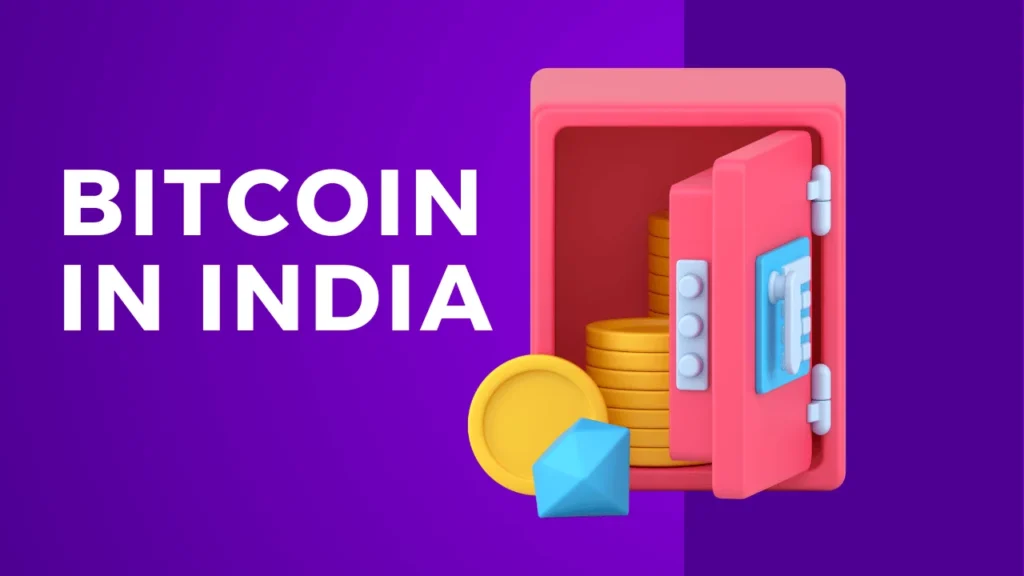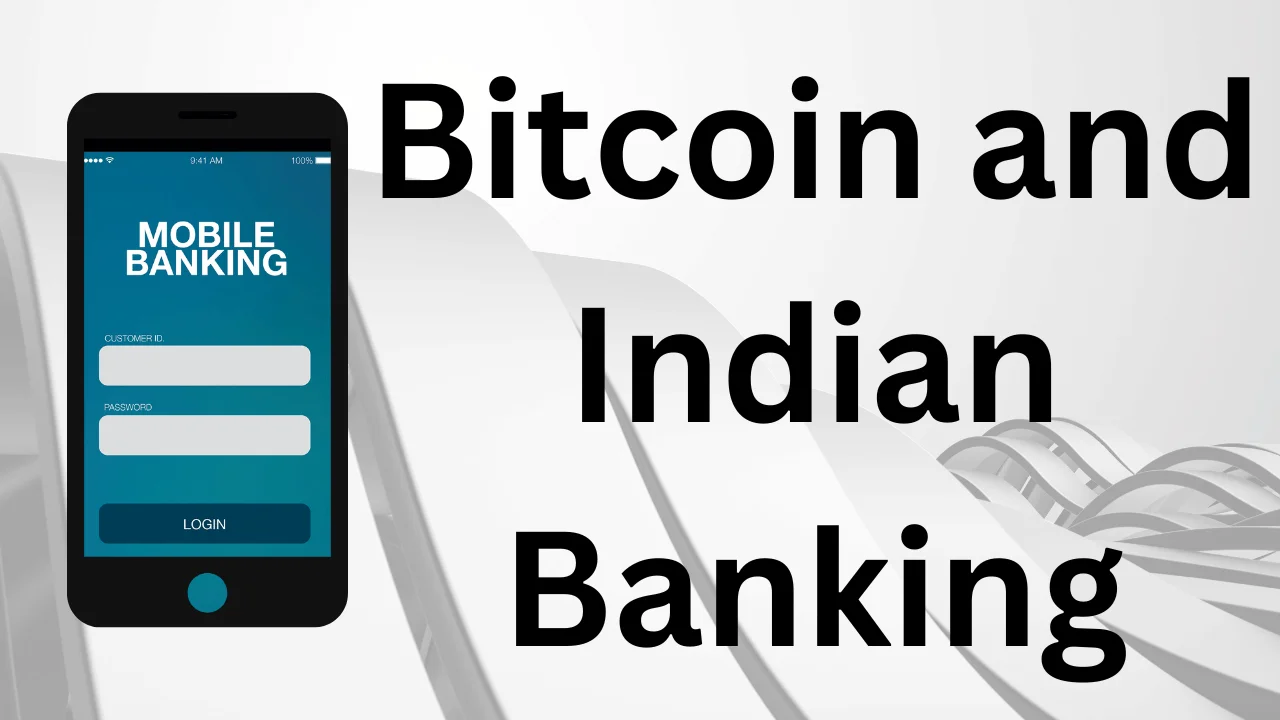Bitcoin and other digital currencies are creating a fascinating narrative of possibility, innovation, and disruption within India’s financial ecosystem. Amidst the long-established foundations of Indian banking, there’s a burgeoning interest in exploring the integration of Bitcoin and Indian banking, ushering in a new era of financial evolution. In this piece, we delve into the intricate relationship between traditional banking structures and the dynamic realm of cryptocurrency. Our narrative seeks to inspire confidence and anticipation for the transformative potential of Bitcoin within India’s financial landscape, sparking discussions on how these two worlds can synergize for mutual benefit.
Bitcoin in India

Despite Bitcoin’s widespread use, the cryptocurrency has encountered a complex legal landscape and cautious regulatory approaches in India. While consumer safety and the avoidance of financial fraud are top priorities, the Indian government and financial regulators have been slow to accept cryptocurrency. However, there is reason to be optimistic about the sector now that the Supreme Court has decided to reverse the RBI’s ban on cryptocurrency transactions with banks. However, Bitcoin is not yet fully legalized, so its regulatory future is uncertain, and this is a critical moment.
Legal Hurdles
The Bitcoin regulatory and legal environment in India exemplifies the nation’s wary attitude towards digital money. Even though Bitcoin transactions aren’t technically illegal, there aren’t any institutional protections in place to prevent fraud or hacking. This highlights the need for a well-rounded regulatory strategy that protects consumers without limiting progress.
Banking Integration and Crypto Services
Slowly but surely, cryptocurrency services are finding their way into India’s banking sector. Efforts like Cashaa’s partnership with a cooperative society to provide crypto banking services demonstrate the increasing popularity of digital currencies. The integration of cryptocurrencies into mainstream banking channels is being gradually but steadily advanced by these developments.
Taxation and Fiscal Policy
An issue with cryptocurrency regulation in India is the taxation. More generally, the crypto community wants India’s crypto sector to be in line with international standards, and their demands for more favorable tax conditions are a part of that effort. To foster the sector’s growth and attract global talent and investment, it is crucial to propose lower tax deduction rates and more accommodating tax slabs for crypto transactions.
Consumer Protection
Consumer protection in the cryptocurrency space is an important issue since there isn’t yet a complete regulatory framework. If the cryptocurrency industry is serious about gaining the trust and confidence of its users and investors, it must implement stringent security measures and provide legal recourses for victims of fraud or security breaches.
Future Prospects and Innovations
The Indian banking sector’s attitude toward Bitcoin will be determined by how well innovation and regulation are balanced. There will be a revolutionary effect on India’s financial services sector as a result of blockchain technology’s ability to transform banking operations and the increasing interest in cryptocurrency investments.
Blockchain and Cryptocurrency Innovation

In addition to the difficulties, there are many opportunities at the crossroads of Bitcoin and Indian banking. The foundational technology of cryptocurrencies, blockchain, presents the banking industry with unparalleled opportunities to improve efficiency, security, and transparency.
Enhancing Financial Inclusion
Many people in India do not have access to traditional banking services, but that could change with the advent of bitcoin and blockchain technology. A more accessible and inclusive financial ecosystem can be offered by digital currencies by avoiding traditional banking barriers.
Streamlining Banking Operations
Immutability and decentralization are two of blockchain’s inherent characteristics that have the potential to transform banking operations. The technology provides a road map for a better banking system by decreasing transaction times and increasing security measures.
Fostering Global Remittances
Transacting across borders has never been easier or more cost-effective than with cryptocurrencies. With a large expatriate population, Bitcoin could make international money transfers easier and faster for countries like India.
Innovation and Investment
A spark for investment and innovation could be ignited if Bitcoin were to be integrated into the Indian banking sector. India can position itself as a global leader in digital finance by cultivating an ecosystem that is conducive to cryptocurrencies. This will help the country attract talent, technology, and capital.
Path Forward
The path to Bitcoin’s incorporation into India’s financial system is long and winding, but it’s also full of opportunities. To fully utilize the revolutionary potential of cryptocurrencies, a progressive regulatory framework is essential, one that encourages innovation while simultaneously safeguarding consumers and maintaining financial stability.
Embracing Digital Transformation

Bitcoin and other cryptocurrency adoption has sparked a digital revolution in India’s banking sector, marking a watershed moment in the country’s progress towards a more open and progressive financial system. Embracing new technology is only one part of this transformation; the other is rethinking India’s financial future.
Digital Currency Consumer Protection
Consumer protection is becoming more important as Bitcoin is used more and more. Cryptocurrency exchanges must adhere to strict regulations, digital assets must be protected by strong security measures, and a legal framework must be put in place to provide recourse in the event of fraud or disputes. The long-term success of Bitcoin in India’s banking sector depends on boosting customer trust via transparent regulations and robust security measures.
Blockchain Technology in Indian Banks
Indian banks have the chance to innovate thanks to blockchain technology’s applications that go beyond cryptocurrencies. Many parts of the banking industry stand to benefit greatly from blockchain technology, including cross-border transactions, know-your-customer procedures, and fraud prevention. Indian banks can boost operational efficiencies, cut costs, and provide a better experience for customers by using blockchain technology.
Cryptocurrency Investment in India
Banks and investors alike have found new opportunities thanks to the rising popularity of Bitcoin as an investment option. It is possible for banks to offer crypto-based investment products, offer advisory services, and ensure the safety of cryptocurrency investments. This establishes banks as innovative, tech-savvy financial institutions while also broadening their investment opportunities.
DeFi (Decentralized Finance) Opportunities
Using blockchain technology, decentralized finance (DeFi) proposes an alternative to conventional banking that does away with the need for centralized financial intermediaries. When Indian banks get involved with DeFi, it could mean coming up with new DeFi solutions suited to the Indian market, forming partnerships with DeFi platforms, or integrating DeFi services to give customers more say over their financial products.
Crypto Asset Management in India
The demand for expert crypto asset management is rising in tandem with the development of the cryptocurrency market. Crypto asset management is a potential new business line for Indian banks and other financial organizations. They could provide clients with custody solutions, investment advice, portfolio management, and more. Banks get a new source of income while customers get expert advice on how to navigate the cryptocurrency market.
Blockchain Innovation in Indian Banking
The potential for blockchain technology to revolutionize the banking industry extends far beyond the realm of cryptocurrencies. Indian banks can benefit from blockchain technology in a number of ways, including improved supply chain financing and more streamlined payment systems. Indian banks can spearhead the digital transformation of financial services by investing in blockchain research and development.
Navigating Regulatory Waters
Changes in Indian regulation will have a major impact on how Bitcoin and other cryptocurrencies are incorporated into the country’s financial system. To cultivate a robust and stable digital finance ecosystem, it is essential to strike a balance between regulation and innovation.
Cryptocurrency Regulations in India
To safeguard investors, forestall financial crimes, and guarantee the stability of the financial system, a transparent regulatory framework regarding cryptocurrency is crucial. Finding a middle ground between encouraging innovation and reducing risks is the challenge facing Indian regulators as they negotiate the murky waters of digital currencies.
RBI and Virtual Currencies
For India’s cryptocurrency market, the Reserve Bank of India’s position on virtual currencies is crucial. The Reserve Bank of India (RBI) is looking into the possibility of creating a digital rupee, despite its previous statements regarding the dangers of cryptocurrency. The sector will be profoundly affected by the central bank’s stance on digital currency regulation and possible adoption.
Supreme Court on Bitcoin Transactions
A watershed moment for India’s cryptocurrency industry came when the Supreme Court decided to lift the RBI’s ban on cryptocurrency transactions with banks. Bitcoin and other digital currencies will be significantly influenced by the future of cryptocurrency law by the decisions and interpretations of the judiciary.
Anti-Money Laundering (AML) Crypto Policies
The prevention of financial crimes depends on the implementation of effective anti-money-laundering regulations for bitcoin transactions. To prevent the abuse of the financial system and guarantee conformity with international standards, Indian banks and cryptocurrency exchanges must collaborate to develop strong anti-money-laundering frameworks.
Cryptocurrency Legal Status in India
It is still up for grabs what cryptocurrency’s official standing is in India. Investors and service providers will benefit from clear legislation that defines the legal status of digital currencies like Bitcoin. This will also allow for a more comprehensive integration of cryptocurrencies into the Indian financial system.
Must Read: Bitcoin Adoption in Indian Businesses: Unlocking Indian Businesses
Conclusion
The story of Bitcoin and Indian banking is developing, in conclusion, against a background of cautious optimism and revolutionary promise. Maintaining a well-balanced ecosystem that fosters development, innovation, and security should be India’s top priority as it works through the challenges of incorporating digital currencies into its financial system. Bitcoin has the potential to significantly impact Indian banking in the future, propel financial inclusion, and put India at the vanguard of the worldwide digital finance revolution with the correct regulatory approach and a dedication to innovation.

Brandy Stewart, an enchanting wordsmith and seasoned blogger, weaves compelling narratives that transport readers to uncharted territories. Infused with perceptive viewpoints and dynamic storytelling, Doris exhibits a command of language that enthralls both hearts and minds, leaving a lasting mark on the literary panorama.

